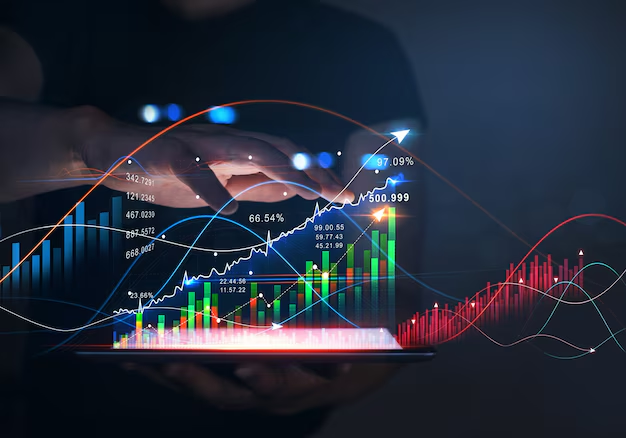Economics, the study of how societies allocate resources to meet needs and desires, has always evolved with the times. However, the future of economics will likely witness seismic shifts driven by technological advancements, global interconnectedness, environmental concerns, and demographic changes. As the world continues to change rapidly, economists must adapt to address these new challenges and opportunities.
1. Technological Disruption and Automation
One of the most significant factors shaping the future of economics is the rise of automation and artificial intelligence (AI). Technologies like AI, robotics, and machine learning are transforming industries by automating routine tasks, which could lead to higher productivity and reduced labor costs. However, this could also lead to a significant disruption in the job market as millions of workers face the risk of displacement.
The future economic landscape will likely see a greater emphasis on the need to retrain workers and create new kinds of jobs that are resistant to automation. Furthermore, policies like universal basic income (UBI) or a “robot tax” could emerge as ways to ensure that wealth generated by automation benefits society at large and reduces inequality.
2. Globalization and the Economy of Tomorrow
Globalization has brought the world closer together, fostering increased trade, travel, and communication. However, recent trends, such as the COVID-19 pandemic and rising nationalism, have led many countries to reconsider the benefits of a fully globalized economy. In the future, we may witness a shift toward regionalization, where countries prioritize economic alliances within specific regions rather than relying on the global marketplace.
This new economic order could change the structure of global supply chains, affecting everything from manufacturing to the delivery of services. Economists will need to understand these new patterns and offer guidance on how countries can balance the benefits of international trade with the need for economic self-sufficiency.
3. Climate Change and the Green Economy
As climate change accelerates, the world’s economy will have to adapt to new environmental realities. The push toward sustainable practices is not just an ethical obligation but also an economic necessity. The green economy—an economy that aims to reduce carbon emissions and promote sustainable growth—is set to be a key feature of the future.
Governments are already introducing policies to incentivize clean energy, reduce waste, and promote sustainability. For instance, the rise of electric vehicles, renewable energy, and eco-friendly building practices will create new industries and opportunities. Economists will need to reframe traditional economic growth metrics to include environmental considerations and advocate for policies that ensure growth is both sustainable and inclusive.
4. The Rise of Digital Currencies
The advent of blockchain technology and cryptocurrencies like Bitcoin and Ethereum has introduced a new dimension to economic systems. Digital currencies have the potential to disrupt traditional banking systems by providing alternatives to centralized financial institutions. Additionally, central banks in many countries are exploring the idea of central bank digital currencies (CBDCs) to streamline payments and maintain control over monetary policy.
The future of economics will see increased attention on digital currencies, as well as the challenges and opportunities they present. Economists will need to study the implications of digital currencies on financial systems, the global economy, and how they could change the way people access, save, and spend money.
5. Changing Demographics and the Workforce
As populations in many countries age, the global workforce will undergo significant changes. The aging population means that there will be fewer workers to support a growing number of retirees, which could strain pension systems and healthcare infrastructures. Additionally, the younger generation may experience shifts in employment patterns due to factors like remote work and the gig economy.
The future of economics will also need to account for the diversity of the workforce. Increasing migration and changing social structures will contribute to different demands in terms of labor, consumption, and public services. Policymakers will have to rethink labor market policies, retirement systems, and social safety nets to ensure economic stability in this new demographic reality.
6. Health Crises and Economic Resilience
The COVID-19 pandemic has revealed the vulnerability of global economies to unforeseen health crises. The economic downturn caused by the pandemic has shown the importance of building economic resilience. In the future, governments and businesses will likely focus more on preparing for such crises by investing in healthcare systems, technology, and remote work infrastructure.
Economists will need to analyze how countries can balance short-term relief efforts with long-term economic resilience. This could involve revisiting policies related to public health, insurance, and crisis management to ensure that the economy can weather future shocks.
7. The Role of Data and Economic Decision-Making
In an age where data is king, the future of economics will heavily rely on data-driven decision-making. Big data analytics, machine learning, and predictive modeling will enable economists to understand consumer behavior, market trends, and economic risks with unprecedented precision. These tools will help policymakers make informed decisions about fiscal and monetary policies, trade agreements, and labor market interventions.
The integration of data into economic decision-making processes will require new methods for analyzing and interpreting vast amounts of information. Economists will need to harness these tools while ensuring that data privacy and security are maintained.
FAQs
- What is the green economy?
- The green economy refers to economic activities that promote sustainable development, reduce carbon emissions, and support environmental conservation.
- How will automation impact jobs?
- Automation will replace some jobs while creating new ones that require different skills. Workers will need to adapt through retraining and reskilling to stay competitive in the labor market.
- What are central bank digital currencies (CBDCs)?
- CBDCs are digital versions of national currencies issued by central banks. They aim to make transactions more efficient and secure while allowing governments to maintain control over monetary policies.
- What is universal basic income (UBI)?
- UBI is a system where every citizen receives a regular, unconditional sum of money from the government, regardless of employment status, as a way to address automation-induced unemployment.
- How will demographic changes affect economies?
- Aging populations will put pressure on pension systems and healthcare services, while a more diverse workforce will require new policies to manage labor demands and social services.
- Why is data important in economics?
- Data helps economists and policymakers make informed decisions, identify trends, and predict future economic behavior, which can drive more effective and efficient policies.
- What can be done to improve economic resilience after health crises?
- Strengthening healthcare infrastructure, diversifying supply chains, and investing in remote work capabilities are key strategies to build economic resilience in the face of future health crises.
Conclusion
The future of economics is dynamic and filled with complexities. As technology, demographics, and environmental concerns transform the world, economics must adapt to new realities. By embracing change, rethinking policies, and focusing on sustainability and resilience, economists can help guide societies through these transitions. The key to success lies in creating adaptable systems that balance growth with equity, innovation with responsibility, and efficiency with sustainability.
Key Takeaways
- Technological disruptions like AI and automation will reshape the labor market, requiring new policies for retraining and income distribution.
- Climate change will drive the green economy, pushing for sustainable development and creating new economic opportunities.
- The future will see an increasing reliance on digital currencies and data-driven decision-making in economic policy.
- Economic systems must be resilient to health crises and demographic shifts to ensure long-term stability.

